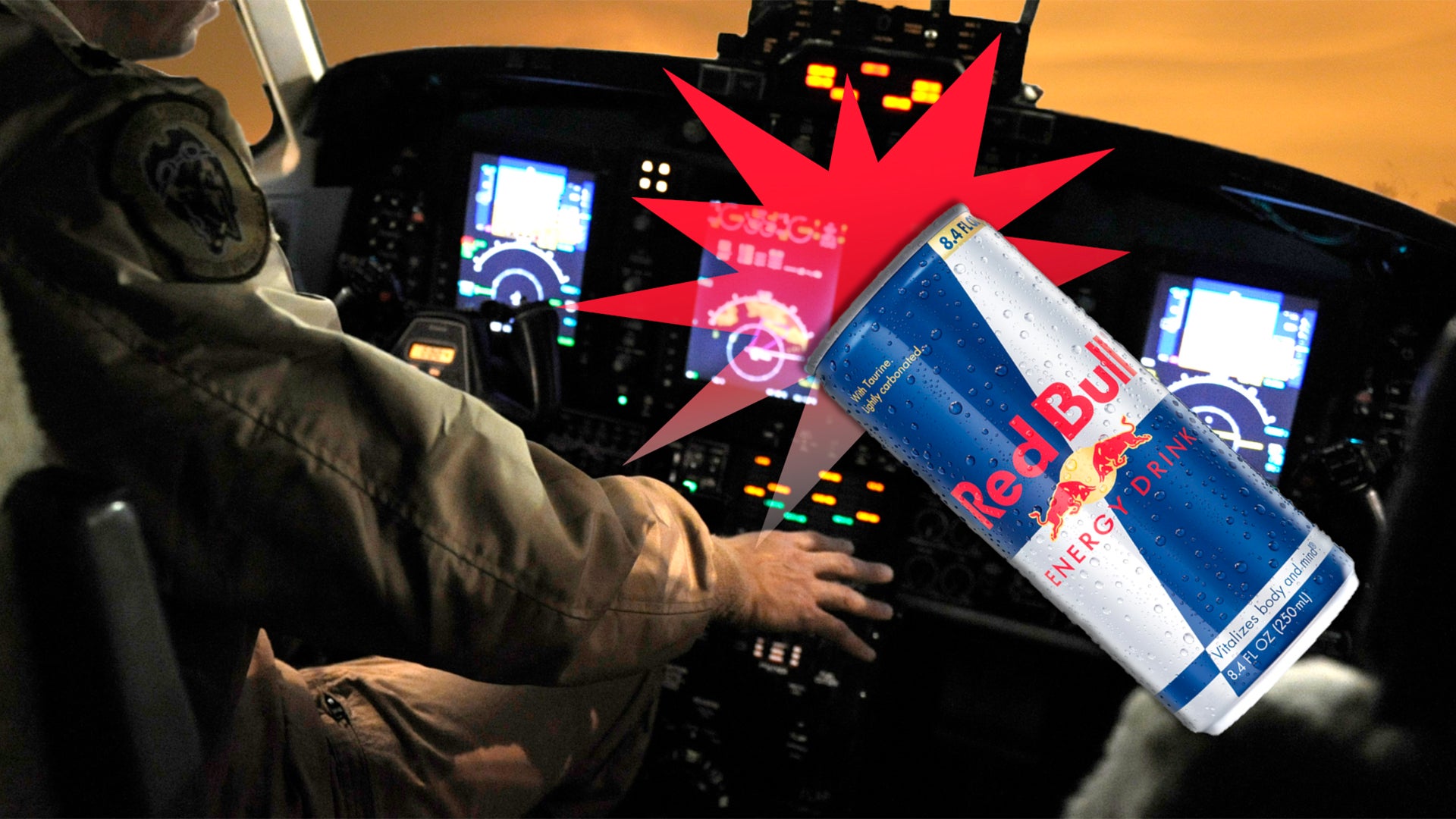There is, without a doubt, a crisis impacting the U.S. military’s diverse aviation communities for a host of reasons, but, no matter what the Pentagon and the different services do, they won’t ever be able to eliminate crashes and other mishaps entirely. Accidents do happen and when it comes to military aircraft they can be very costly, even if it’s just a can of Red Bull bursting all over a flight console.
No, seriously, this is exactly what happened to the crew of an MC-12W Liberty intelligence, surveillance, and reconnaissance aircraft, serial number 10-006450, on June 5, 2017. The aircraft was assigned to a unit within Air Force Special Operations Command and was flying what was likely a training mission out of Hurlburt Field in Florida.

The War Zone obtained a heavily redacted summary of the incident via the Freedom of Information Act after spotting a basic description of the mishap in Military Times’
online crash database. This is how the report describes the incident:
On 5 Jun 2017, the Mishap Crew (MC) was enroute to their assigned airspace when the Mishap Copilot (MCP, Person #1) retrieved a 16oz can of Red Bull from his backpack. While still holding the unopened can, the can ruptured spilling fluid onto the center console. While the MCP used his shirt to absorb what he could, the Mishap Pilot (MP) noticed a faint odor. He subsequently shut down the mission system power, which alleviated the odor. The crew discussed their options and decided to RTB [return to base].
There’s no indication that the crew, which included a private contractor, was ever physically in danger during the mishap. The aftermath might have earned them some sort disciplinary action, but Air Force censors redacted the investigating officers’ findings, conclusions, and recommendations. Unfortunately, there were no picture attached to the report, either.
What we do know is how much the incident cost the service – $113,675. That’s more than $7,000 of damage for each ounce of Red Bull that “Person #1” spilled in the cockpit.

This is what the Air Force had to spend to have maintenance personnel remove 13 specific electronic “line replaceable units,” or LRUs, for inspection and install replacements in their place. These self-contained components could include displays, switchboards, computer processors, and other systems. It was also enough to ensure the service had to report what happened as a Class C mishap, which is any incident that causes between $50,000 and $499,999 in damages, leaves someone with a non-fatal injury requiring more than a day or specific work shift to recover, or both.
With this in mind, it seems safe to say that the Air Force has since recommended aircrews be more careful with their drinks in the future and leave the stunts to professionals.

Contact the author: jtrevithickpr@gmail.com
